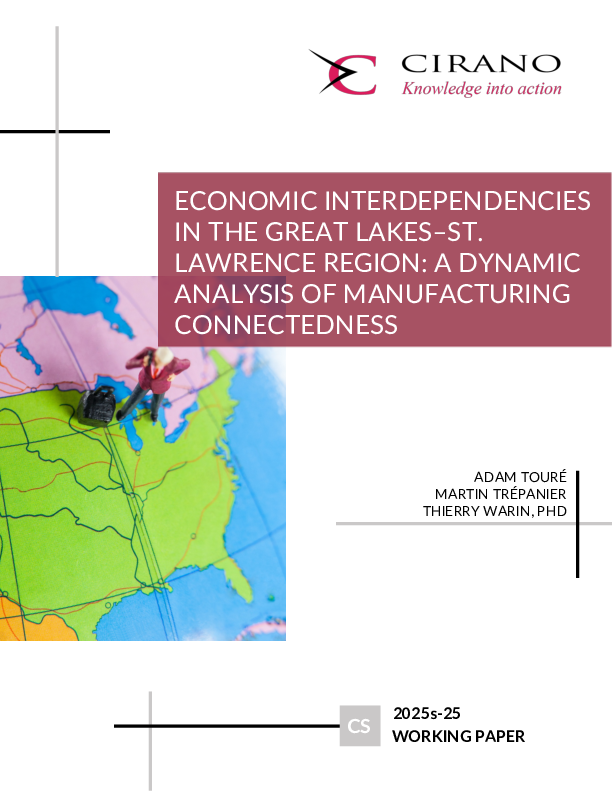Invariant tests based on M-estimators, estimating functions, and the generalized method of moments
We
study the invariance properties of various test criteria which have been
proposed for hypothesis testing in the context of incompletely specified
models, such as models which are formulated in terms of estimating functions
(Godambe, 1960, Ann. Math. Stat.) or
moment conditions and are estimated by generalized method of moments (GMM)
procedures (Hansen, 1982, Econometrica),
and models estimated by pseudo-likelihood (Gouri´eroux, Monfort and Trognon,
1984, Econometrica) and M-estimation
methods. The invariance properties considered include invariance to (possibly nonlinear)
hypothesis reformulations and reparameterizations. The test statistics examined
include Wald-type, LR-type, LM-type, score-type, and C(![]() )−type criteria. Extending the approach used in
Dagenais and Dufour (1991, Econometrica),
we show first that all these test statistics except the Wald-type ones are
invariant to equivalent hypothesis reformulations (under usual regularity
conditions), but all five of them are not
generally invariant to model reparameterizations, including measurement
unit changes in nonlinear models. In other words, testing two equivalent
hypotheses in the context of equivalent models may lead to completely different
inferences. For example, this may occur after an apparently innocuous rescaling
of some model variables. Then, in view of avoiding such undesirable properties,
we study restrictions that can be imposed on the objective functions used for
pseudo-likelihood (or M-estimation) as well as the structure of the test
criteria used with estimating functions and GMM procedures to obtain invariant
tests. In particular, we show that using linear exponential pseudo-likelihood
functions allows one to obtain invariant scoretype and C(
)−type criteria. Extending the approach used in
Dagenais and Dufour (1991, Econometrica),
we show first that all these test statistics except the Wald-type ones are
invariant to equivalent hypothesis reformulations (under usual regularity
conditions), but all five of them are not
generally invariant to model reparameterizations, including measurement
unit changes in nonlinear models. In other words, testing two equivalent
hypotheses in the context of equivalent models may lead to completely different
inferences. For example, this may occur after an apparently innocuous rescaling
of some model variables. Then, in view of avoiding such undesirable properties,
we study restrictions that can be imposed on the objective functions used for
pseudo-likelihood (or M-estimation) as well as the structure of the test
criteria used with estimating functions and GMM procedures to obtain invariant
tests. In particular, we show that using linear exponential pseudo-likelihood
functions allows one to obtain invariant scoretype and C(![]() )−type test criteria, while in the context of
estimating function (or GMM) procedures it is possible to modify a LR-type
statistic proposed by Newey and West (1987, Int.
Econ. Rev.) to obtain a test statistic that is invariant to general
reparameterizations. The invariance associated with linear exponential
pseudo-likelihood functions is interpreted as a strong argument for using such pseudo-likelihood
functions in empirical work.
)−type test criteria, while in the context of
estimating function (or GMM) procedures it is possible to modify a LR-type
statistic proposed by Newey and West (1987, Int.
Econ. Rev.) to obtain a test statistic that is invariant to general
reparameterizations. The invariance associated with linear exponential
pseudo-likelihood functions is interpreted as a strong argument for using such pseudo-likelihood
functions in empirical work.
[ - ]




